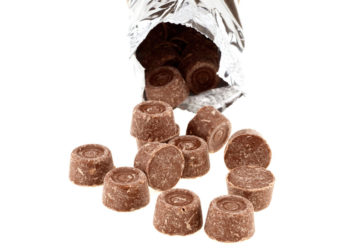In the year 2025, I never thought we’d be having Edward Sharpe and the Magnetic Zeroes discourse. Specifically, we’ve been having discussions about their 2010 hit single “Home.” It started around August 4, when a clip of their 2009 Tiny Desk concert began circulating around Twitter, featuring the pull-no-punches caption “Worst song ever made.”
This tweet garnered comments, retweets, Reddit threads, Instagram posts, and media coverage. Additionally, it earned a response from Alex Ebert himself, frontman of Edward Sharpe and the Magnetic Zeroes. For Ebert, “Home” was more than a kickoff of some of the worst music of the 2010s—what has been dubbed the “stomp clap hey” genre.
In a recent interview with Stereogum, Ebert revealed not only his thought process behind “Home,” but his perspective on its subsequent commercialization. If you were coming up during the 2010s, you’ll probably have nebulous memories of this song. Can’t pinpoint exactly when or where you heard it? That’s likely because it was everywhere, all the time, haunting our TV commercials and Starbuckses and Target aisles and Top 40 radio stations.
In gentle terms, “Home” is not a song I particularly enjoy or have ever enjoyed. I couldn’t get beyond the barrier of it to the rest of Edward Sharpe and the Magnetic Zeroes’ discography. Allegedly, “Home” was a one-off, and they didn’t make anything remotely like it since. But as a teenager in 2010, “Home” was the eagle continually pecking out my liver.
Alex Ebert of Edward Sharpe and the magnetic zeroes knows “home” is a good song despite the Hate
Alex Ebert’s perspective on “Home” as an objectively good song despite the often aggressive dislike managed to shift something in my brain. His response to the discourse can be boiled down to “good song, bad commercialization,” but his answers are also nuanced and deeply introspective.
The inception of “Home” goes back to Ebert’s time in the band Ima Robot, which has been inactive since 2011. In the early 2000s, Ebert’s stage persona was staunchly nonconformist to the point of conformity.
“I never smiled on stage,” he said. “I remember I was afraid of smiling on stage. It was about punk rock, and it was about “f–k you,” and it was about dissent and all of the unsafe things. But then of course I started to feel the burden of the expectation of that behavior, and I realized, ‘Oh, this isn’t actually an unsafe behavior. It’s my expected behavior.’”
He continued, “And then I realized, ‘Well, what’s the thing I’m actually most afraid of doing? Because I feel like this is expected.’ And I realized that the scariest thing to me was being uncool … And so I really actually did it on purpose, because I needed to.”
Ebert explained he went into it knowing there was potential for commercialization, but ultimately, “Home” was an expression of earnestness. However, after the song hit it big, stomp clap as a derivative genre started taking off as well. Now, a decade and some change removed from that era, the unprecedented vitriol is interesting to look back on.
“Home” Set the Standard of Indie folk for nearly the next decade
Ebert clarified that “rock and roll has a counterweight.” At that time, it was the stomp clap genre that was just emerging. However, “then the counterweight turns into its own commercial monstrosity,” said Ebert. “It did a big favor for rock and roll. If anything, it made rock ‘n’ roll more necessary. You can’t just have runaway earnestness because that is too naive for the world.”
Despite the earnest origins of “Home,” it quickly ushered in a monstrosity of imitation. “It wasn’t just big bands that were doing the ripping off,” said Ebert. “Commercial agencies would hire non-bands, just random musicians that happen to work in a commercial music house, to do something that is ‘Home’ adjacent … That’s upsetting to me. Do you know what I mean? I really hate that.”
Can we blame capitalism for the inundation of stomp clap songs? For Mumford and Sons, The Lumineers, Of Monsters and Men? Maybe these bands would have happened anyway, but Edward Sharpe and the Magnetic Zeroes were essentially the nexus of it all.
That’s part of why Alex Ebert was pissed about the copycats. Here he had this song, created from a place of earnestness and self-reflection, and it was being commandeered to sell a post-recession golden age to consumers.
Still, he said, he’s not mad at the way stomp clap evolved, all things considered. “I’m just upset at the monster of rock ‘n’ roll,” he explained. “And sometimes I just don’t know how to approach it. Its basic function is to do that.
“Sometimes you can dream of making something that is so sort of commercial-proof, but how do you go pop without going pop? It’s very … I don’t know if that’s possible,” he admitted.
Uncommercializing Commercialism
At the end of it all, Edward Sharpe and the Magnetic Zeroes paved the way for a specific era of Millennial cringe. But with the recent return of recession pop, it begs the question, does stomp clap have an expiration date? This seems unlikely; the kids yearn to recreate the height of Millennial success.
What Alex Ebert aimed to do with “Home” was to be uncool. To shed the safety of being unsafe, the counterculture that, at its core, had become culture, he said.
“I was like, ‘What if I could un-commercialize commercialism? What if this could be, like, a mess, but also be charming in a way to people?’” he explained. The band brought random people on tour for backing vocals (“Nathaniel,” said Ebert, “a guy on who was passed up to our stage by the audience”), used an excessive amount of instruments, and people who maybe couldn’t hold a pitch too well.
“And so everything sounded out of whack, and that was what I wanted,” Ebert said. “And that’s kind of the feeling that I was going for.”
“Home” may have grown legs and walked away, into a wild unknown of Toyota commercials and repetitive airplay. But at its heart it birthed an entire genre into existence. Would The Lumineers have written “Ho Hey” in 2012 without “Home” in 2010? I ask you, then, if we strip “Home” from the cultural zeitgeist, labeling it “the worst song ever made,” what becomes of a decade of indie folk? Where do we hang our tambourines and our accordions when the sun sets on Edward Sharpe and the Magnetic Zeroes?
Photo by Gabriel Rossi/LatinContent via Getty Images
The post The Edward Sharpe and the Magnetic Zeroes Discourse Reveals “Home” Was Always About Being Earnest appeared first on VICE.




